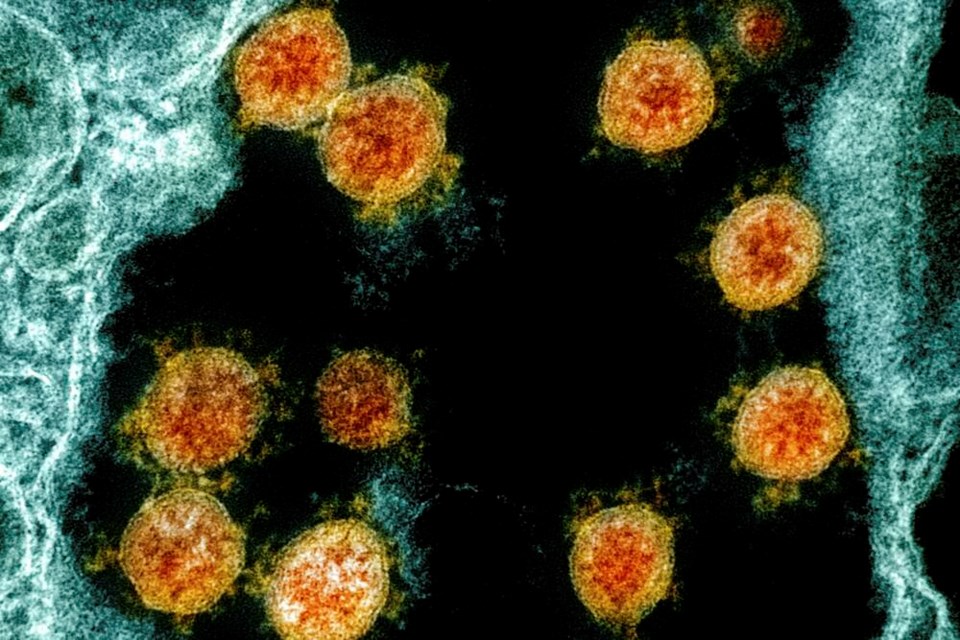VANCOUVER — Researchers at the University of British Columbia have discovered a “weak spot” in all major variants of the virus that causes COVID-19, a breakthrough that could lead to universally effective treatments.
In a study, published Thursday in Nature Communications, researchers used a process called cryo-electron microscopy.
This new technology allows researchers to rapidly freeze proteins at the atomic level so they can take hundreds of thousands of snapshots — much like X-rays — of individual proteins.
“Then, we can then combine them computationally in 3D to create the atomic landscape of what the protein looks like,” said Dr. Sriram Subramaniam, a professor at UBC’s faculty of medicine and the lead author of the study.
“So, in this particular instance, what we report on is one of many examples where we’re using the technology to literally be observers at the site of contact between an antibody and the spike protein.”
And what they found was an antibody fragment that is able to attach to this site and neutralize each major variant.
”It’s very powerful and lets us watch in atomic detail what the interactions are. And, of course, that sets the stage for development of therapeutics down the road.”
Subramaniam said SARS-CoV-2 is a highly adaptable virus that has evolved to evade most existing antibody treatments, and what their study does is reveal a weak spot that is largely unchanged across variants that can be neutralized by an antibody fragment.
“This is a highly adaptable virus that has evolved to evade most existing antibody treatments, as well as much of the immunity conferred by vaccines and natural infection,” he said, adding that finding a site of vulnerability that didn’t change so much across all these variants was interesting.
“Antibodies attach to a virus in a very specific manner, like a key going into a lock. But when the virus mutates, the key no longer fits. … We’ve been looking for master keys.”
The “master key” identified in this new paper is the antibody fragment VH Ab6, which was shown to be effective against the Alpha, Beta, Gamma, Delta, Kappa, Epsilon and Omicron variants. The fragment neutralizes SARS-CoV-2 by attaching to the epitope on the spike protein and blocking the virus from entering human cells.
Subramaniam said it is too soon to say whether this will lead to a single vaccine for all mutations, but what they have discovered is the ability to zero in and say which part of the virus is important. This can then be used by drug companies to find treatment.
“And so this is where we focus our efforts because, look, it survived. It survived from major mutations across the whole pandemic. … So I think it gives us lesson zero and essentially it’s let’s find this hotspot for zeroing in our efforts to get the best antibodies that achieve the effect of blocking viral entry.”
The discovery is a collaboration between Subramaniam’s team at UBC and colleagues at the University of Pittsburgh, led by Drs. Mitko Dimitrov and Wei Li.



